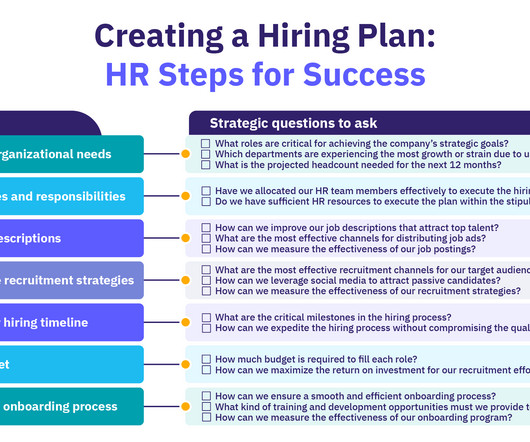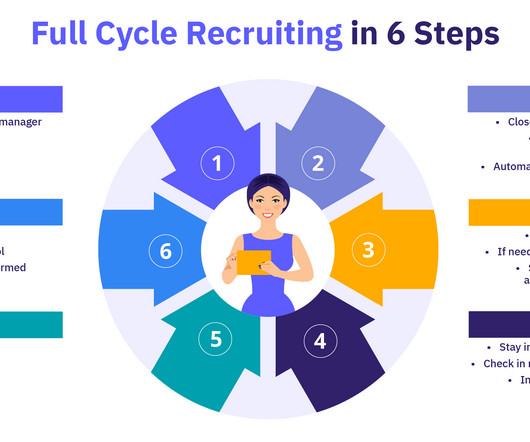How To Craft a Strategic Hiring Plan in 2025
Analytics in HR
DECEMBER 2, 2024
This online, self-paced Certificate Program will also teach you the essential screening methods, help you to build a compelling employer brand and how to analyze recruitment analytics. Leverage data analytics Company data is another essential source of information for forecasting hiring needs.























Let's personalize your content